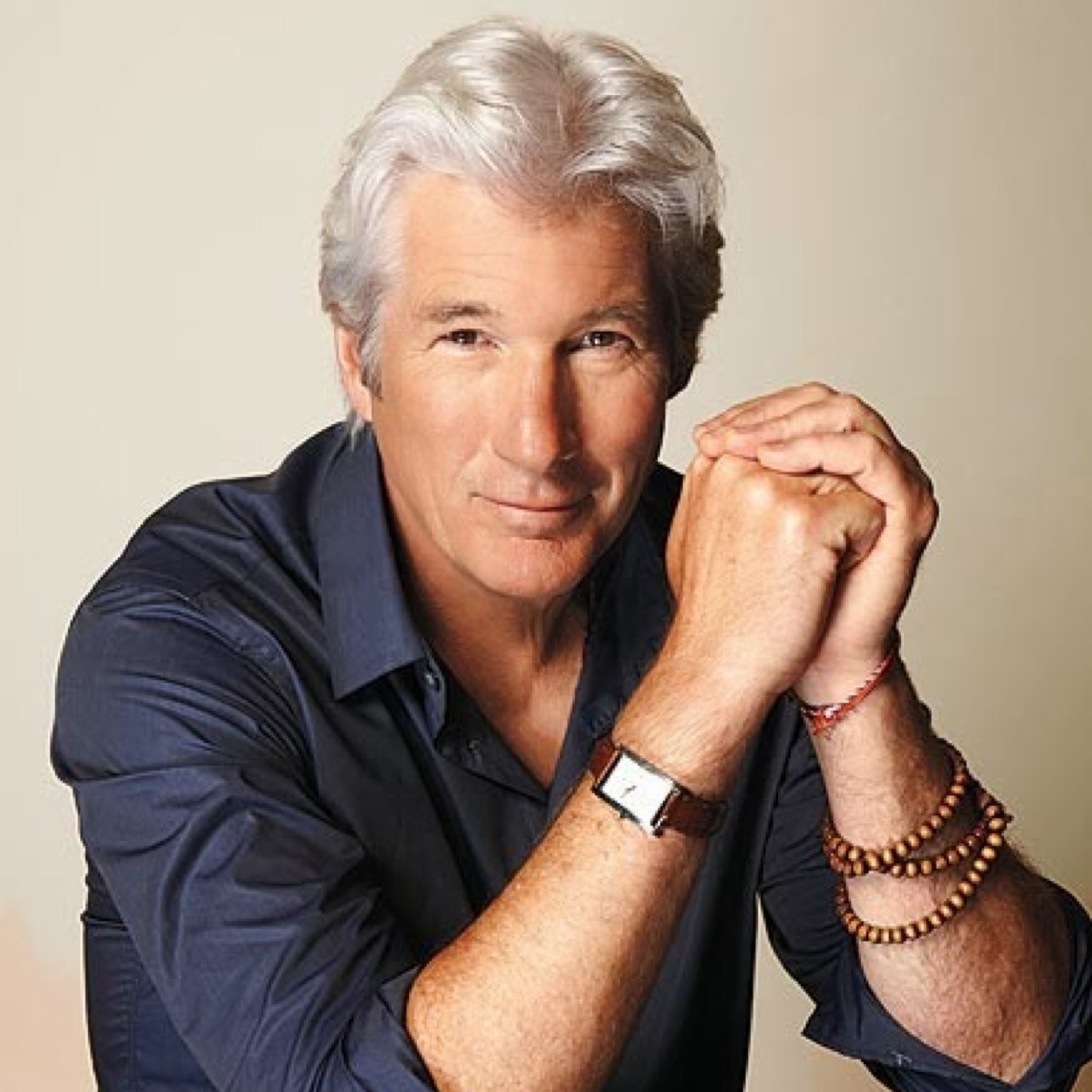Richard Gere's Controversial Sacrament: A Tale Of Faith Or Folly?
Richard Gere, the renowned American actor, has been a household name for decades, gracing the silver screen with his charming performances in a variety of films. However, beneath his Hollywood persona, Gere has been embroiled in a long-standing controversy surrounding his spiritual beliefs. In this article, we'll delve into the world of Richard Gere's sacrament, exploring the faith that drives him and the criticisms that surround it.
Gere's association with theDalai Lama and his advocacy for Tibetan independence have sparked heated debates about his spiritual leanings. While some hail him as a champion of human rights and compassion, others dismiss his views as naive or even treacherous. As we navigate the complexities of Gere's faith, it's essential to consider the historical and cultural context that has shaped his worldview.
Background on Richard Gere's Spiritual Journey
Born on August 31, 1949, in Philadelphia, Pennsylvania, Richard Gere's spiritual path began at a young age. Growing up in a Catholic household, he was introduced to the faith by his parents, Dorothy and Homer Gere. However, as he grew older, Gere's curiosity about Eastern spirituality led him to explore Buddhism and other non-traditional faiths.
The Influence of Buddhism on Gere's Views
Gere's connection to Buddhism is deeply rooted in his work with the Dalai Lama, who he met in the 1970s. The two formed a close bond, with Gere serving as a spokesperson for the Tibetan cause. Gere's advocacy for Tibetan independence has been met with both praise and criticism, with some labeling him a naive idealist.
Gere's involvement in the Tibetan cause has been marked by his attendance at high-profile events, such as the 1989 Freedom Convention in Tibet.
He has also worked closely with the Dalai Lama, supporting his efforts to promote peace and understanding between Tibet and China.
However, his stance has been criticized by some as overly simplistic, failing to account for the complexities of the situation.
Criticisms of Gere's Sacrament
Despite his good intentions, Gere's spiritual views have been subject to intense scrutiny. Critics argue that his naive approach to the situation has led to a lack of nuance and a failure to consider the consequences of his actions.
Some have accused Gere of being overly sympathetic to the Tibetan cause, failing to account for the historical and cultural context that has shaped the region.
Others have criticized his focus on the Dalai Lama, arguing that it detracts from the broader issue of human rights in Tibet.
Furthermore, Gere's association with the Dalai Lama has led to accusations that he is supporting a separatist movement, which some argue is contrary to Buddhist teachings.
The Controversy Surrounding Gere's Sacrament
Gere's involvement in the Tibetan cause has sparked a heated debate about the nature of his faith. While some see his advocacy as a testament to his compassion and empathy, others view it as a misguided attempt to impose his own values on a complex and sensitive issue.
The Role of Faith in Gere's Views
Faith plays a significant role in Gere's worldview, and his association with the Dalai Lama is a prime example of this. Gere's commitment to the Tibetan cause is deeply rooted in his spiritual beliefs, which emphasize the importance of compassion, empathy, and understanding.
Gere's views on the nature of reality and the human condition are shaped by his spiritual practices, which include meditation and mindfulness.
His commitment to the Dalai Lama's teachings has led him to prioritize the pursuit of peace and understanding over other considerations.
However, this focus has also led to criticisms that Gere is overly simplistic in his views, failing to account for the complexities of the situation.
The Impact of Gere's Sacrament on His Career
Gere's involvement in the Tibetan cause has had a significant impact on his career. While some have praised his commitment to the cause, others have criticized his views as naive or even treacherous.
Gere's association with the Dalai Lama has led to a backlash from some in the Hollywood community, who view his involvement as a publicity stunt.
However, Gere's dedication to the cause has also earned him a loyal following, with many fans praising his commitment to human rights and compassion.
Despite the controversy, Gere remains committed to the Tibetan cause, using his platform to raise awareness and support for the region.
Conclusion
Richard Gere's sacrament is a complex and multifaceted issue, driven by a deep commitment to compassion, empathy, and understanding. While his association with the Dalai Lama has sparked heated debates about his spiritual leanings, it's essential to consider the historical and cultural context that has shaped his worldview.
As we navigate the complexities of Gere's faith, it's crucial to recognize the importance of nuance and context. By examining the role of faith in Gere's views and the impact of his sacrament on his career, we can gain a deeper understanding of the issues at play.
Ultimately, Gere's commitment to the Tibetan cause serves as a powerful reminder of the importance of compassion and empathy in our personal and public lives. While the controversy surrounding his sacrament may be intense, it's essential to approach the issue with an open mind and a critical eye.
Whether viewed as a champion of human rights or a naive idealist, Richard Gere's sacrament remains a complex and thought-provoking issue, deserving of careful consideration and nuanced analysis.
Jelly Beansrome
Aaron Hernandezaughter 2024
Travis Kelce Health
Article Recommendations
- Brad Pitt Height In Feet
- Twitter Nsfw
- Demet Zdemir
- Brandonavid Jackson
- Dwayne Wayans
- Imoo Jung Husband
- Harris Faulkner Illness
- No Me Pi Pa
- Es
- Dan Hayhurst



